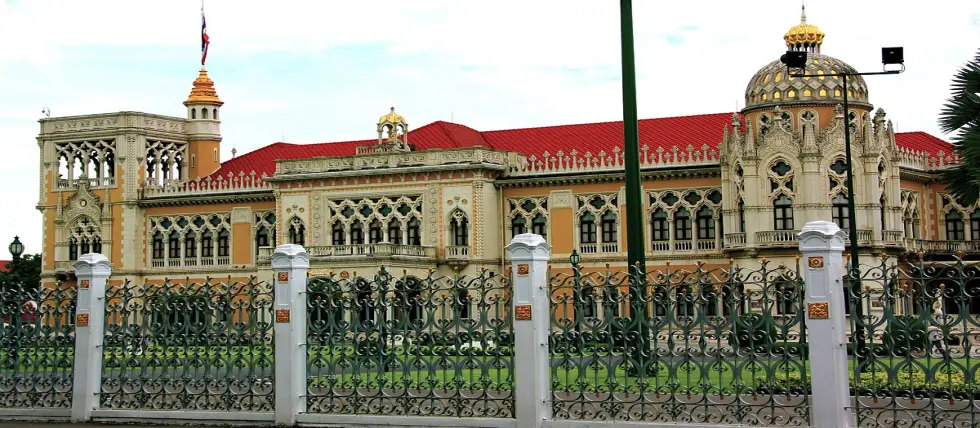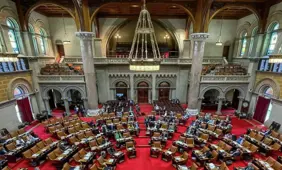Public Input to Sway Thailand's Casino Initiative
Thailand's Fiscal Policy Office (FPO) is set to present a comprehensive set of 45 recommendations to the Cabinet regarding the nation's entertainment complex bill. The recommendations, derived from public consultations, aim to overhaul various aspects of the bill, including potential integrated resort (IR) locations, licensing terms, and ownership ratios.

The FPO is expected to ask the Cabinet to assess and decide on the recommendations. It hopes to adopt those it deems beneficial to the development of the entertainment complex industry.
Among the key recommendations is a proposed requirement that Thai ownership in any entertainment complex business should range between 30% and 51%. This suggestion is aimed at ensuring local participation and benefiting the domestic economy.
Related: 'Urgent' Study of Casinos in Thailand Set to BeginAnother significant recommendation calls for potential revisions to the 30-year validity period currently set for licenses. Some stakeholders involved in the public hearings have advocated for a reduction of the validity period to 10 years, while others have called for it to be extended to 50 or 60 years.
In addition to ownership and license term considerations, the recommendations also touch on the types of entertainment activities that could be permitted within the complexes. There is a proposal to expand the range of activities to include zones that promote and showcase Thai culture.
This move could potentially enhance the appeal of the entertainment complexes to international tourists while preserving and promoting the nation's cultural heritage. It aligns with Thailand's broader goals of boosting tourism and supporting cultural exchange.
The recommendations have also identified preferred locations for the development of entertainment complexes, with Phuket, Chiang Mai, Chonburi, Rayong, and Hua Hin being highlighted as ideal destinations. Notably, Bangkok is absent from the list of preferred sites, despite being a major economic hub.
The exclusion of Bangkok may stem from ongoing debates about the potential economic impact and suitability of developing such complexes in the capital. This issue of location remains contentious, with investment bank JP Morgan estimating that integrated resorts in Bangkok could generate between $2.5 billion and $3 billion annually, with the possibility of reaching $5 billion under optimal conditions.
More Business News
All Investment Options on the Table
Thailand's Deputy Finance Minister, Julapun Amornvivat, recently confirmed that the country's IRs will be open to participation from all private investors. His comments were made amid ongoing debates within the government, with some MPs advocating for state-operated casinos rather than opening the market to global operators.
However, Julapun has made it clear that all interested parties, including international entertainment giants such as Walt Disney and Universal Studios, are welcome to establish a presence in the country once the bill governing entertainment complexes is enacted. He emphasized that transparency and adherence to regulatory processes would be crucial for any company looking to enter the market.
Julapun also addressed the need for the government to establish clear rules and regulations for the operation of casino and resort complexes. This will be a critical step to ensure that the new industry is managed effectively and does not lead to unintended negative consequences for the Thai economy or society. The government's approach to regulating the entertainment complex industry will play a key role in determining its success and sustainability in the long term.
One of the unresolved issues related to the entertainment complex bill is the question of tax collection. While some have proposed that a separate committee or agency be created to oversee this task, the State Fiscal and Financial Disciplines Act recommends that the collection of taxes fall under the jurisdiction of the Customs, Revenues, and Excise departments, which are part of the Finance Ministry.
Julapun noted that further discussions would be necessary to resolve this matter and ensure that the tax framework is clear and enforceable before the bill is passed into law. The effectiveness of tax collection mechanisms will be crucial in ensuring that the new entertainment complexes contribute meaningfully to national revenue.
RELATED TOPICS: Business
Most Read
Must Read
 Interviews
Interviews
Sweepstakes Casinos: Thriving in an Ever-Changing Industry – Interview with Attorney Stephen C. Piepgrass
Feb 17, 2025 Interviews
Interviews








Review this New Post
Leave a Comment
User Comments
Comments for Public Input to Sway Thailand's Casino Initiative